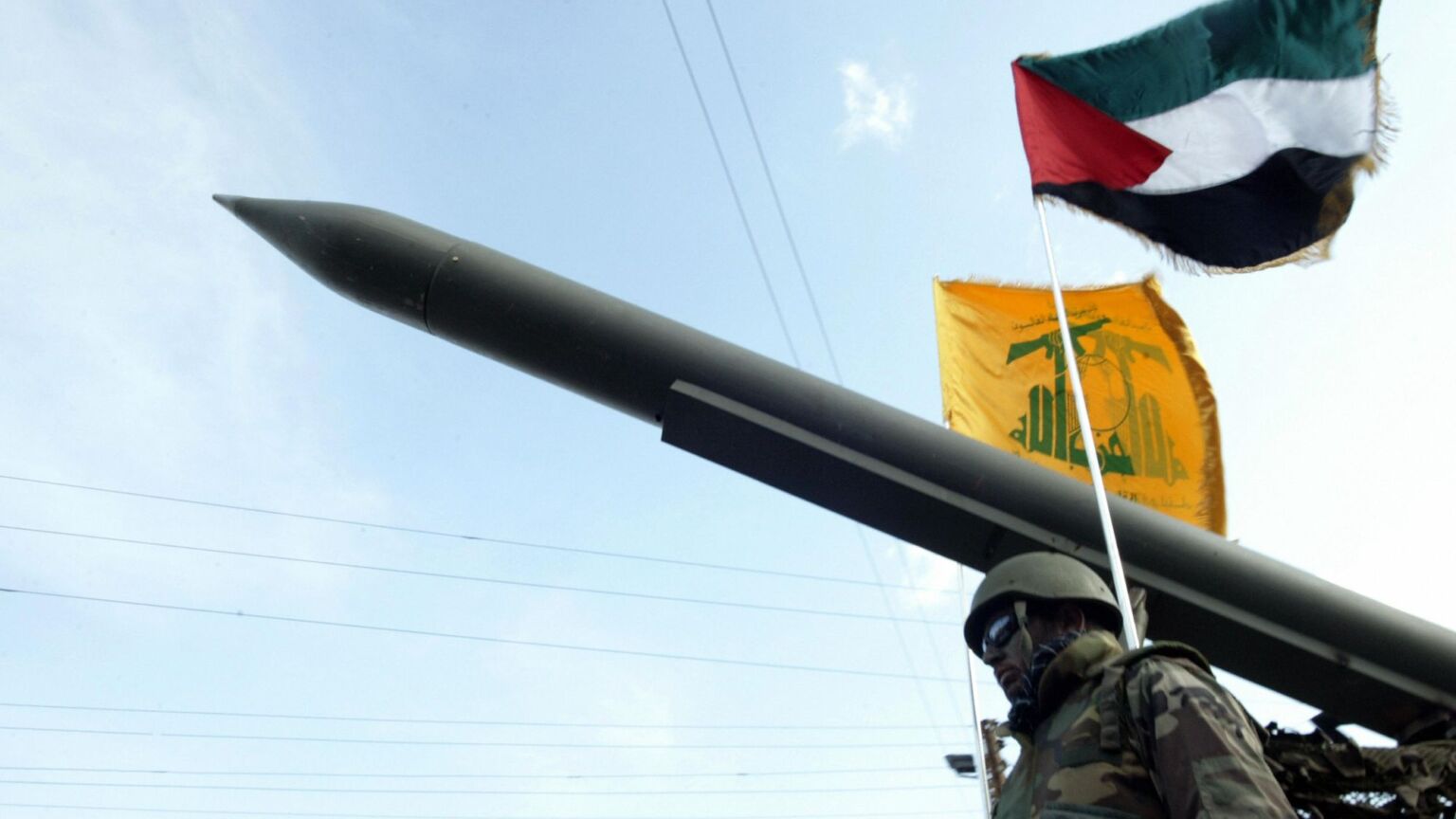The threat from Hezbollah is existential for Israel
The assassination of Fuad Shukr reminds us just how much Israel is up against.

Want to read spiked ad-free? Become a spiked supporter.
The West should not forget that Israel is engaged in a battle for its very survival. Its existence is currently threatened by a formidable coalition of Iran-backed Islamist groups that frequently boast of their goal to destroy the Jewish State.
No wonder, then, that Israel has been forced to take drastic measures to defend itself since Hamas’s 7 October massacre. This includes various assassination attempts of high-profile Islamists – most recently of Hamas’s political leader, Ismail Haniyeh, and senior Hezbollah commander Fuad Shukr this week. Earlier this month, the Israel Defence Forces (IDF) also assassinated Mohammed Deif and Rafa Salama, two senior Hamas military commanders, in the Gaza strip.
Over the years, the IDF has killed many other senior terrorist leaders. All of these were representatives of organisations that time and again have called for Israel’s destruction. Hamas, in particular, has been targeted as a group that blatantly calls for – and acts out – the slaughter of Jews.
It would be a mistake, however, to see the past 10 months of conflict as being simply between Israel and Hamas. Over that period, Israel has been locked in a war with the self-styled ‘axis of resistance’. This includes Hezbollah in Lebanon, the Houthis in Yemen and Shia militias in Iraq. Together, backed by Iran, they have pursued a multi-front assault against Israel since October.
Of all the terrorist forces facing Israel, by far the most powerful – apart from Iran itself – is Hezbollah. It reportedly has 45,000 fighters, of whom 5,000 have completed advanced training in Iran. It also has an estimated 150,000 missiles, many of them sophisticated, aimed at Israel. Experts estimate it could fire 2,500 to 3,000 missiles a day for several weeks.
Although Israel has sophisticated air defences, it looks like Hezbollah’s missiles could overwhelm them by sheer weight of numbers. Hezbollah leader Hassan Nasrallah has boasted about how this formidable arsenal could be used to send Israel ‘back to the Stone Age’, by targeting vital infrastructure like airports, the power grid and the Dimona nuclear-research centre.
Indeed, since its foundation in 1982, Hezbollah has threatened to destroy Israel many times. In 2008, Nasrallah stated that ‘Palestine, from the sea to the river, is the property of Arabs and Palestinians… The entire land must be returned to its rightful owners.’
The latest war between Israel and Hezbollah started on 8 October, the day after the Hamas pogrom in southern Israel. Nasrallah openly declared it himself. This largely unrecognised war in Israel’s north has exacted a heavy toll. Since October, Hezbollah has launched over 5,000 high-trajectory and direct-fire projectiles against Israel. The result is that at least 30 people, including 19 soldiers, have been killed and dozens injured. Over 60,000 Israelis have also been evacuated from the northern border in case Hezbollah attempts a direct assault. At times, as a result of Hezbollah’s bombardment, the whole area has literally been in flames. Yet none of this devastation has received much attention in the Western media.
Of course, the assassinations of Haniyeh and Shukr are by no means the end of the threats Israel faces. The Yemen-based Houthis – whose motto is: ‘God Is great, death to America, death to Israel, curse the Jews, victory to Islam’ – have attacked Israel over 200 times since 7 October. Shia militias based in Iraq have also launched over 100 missiles and drones against Israel over the same period.
Then, of course, there is Iran itself, the force behind the so-called axis of resistance. Like its proxy forces, the Islamic Republic has openly pledged to destroy Israel many times. In the view of Iranian supreme leader Ali Khamenei, the Jewish state is a ‘cancerous tumour’. This year, Tehran also established the dangerous precedent that it can attack Israel directly with relative impunity.
It should also not be forgotten that influential forces in the West are, at the very least, appeasing Iran. As part of its broader geopolitical strategy, the Biden administration has, among other things, given Iran access to substantial funds. It is also reluctant to draw too much attention to Iran’s key role in backing Hamas. In addition, Iran has received substantial moral support for itself and its allies from anti-Israel campus protesters in America. Ali Khamenei returned the favour with a letter in May, thanking them for their support. In it, he congratulated the protesters for becoming part of the ‘resistance front’.
The next time someone refers to the ‘Israel-Gaza war’, or even the ‘Israel-Hamas war’, it is worth remembering that neither are truly accurate descriptions. Israel is certainly not engaged in a war against the people of Gaza, who are being cynically used as human shields by Hamas. And this is not a war solely against Hamas, either. In truth, many of Israel’s neighbours want to wipe it off the map. The threat it faces is existential.
Daniel Ben-Ami is an author and journalist. He runs the website Radicalism of Fools, dedicated to rethinking anti-Semitism. Follow him on X: @danielbenami
Picture by: Getty.
Who funds spiked? You do
We are funded by you. And in this era of cancel culture and advertiser boycotts, we rely on your donations more than ever. Seventy per cent of our revenue comes from our readers’ donations – the vast majority giving just £5 per month. If you make a regular donation – of £5 a month or £50 a year – you can become a and enjoy:
–Ad-free reading
–Exclusive events
–Access to our comments section
It’s the best way to keep spiked going – and growing. Thank you!










Comments
Want to join the conversation?
Only spiked supporters and patrons, who donate regularly to us, can comment on our articles.